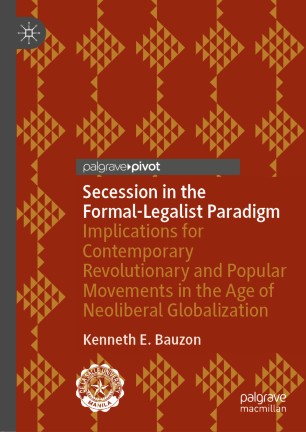

Most ebook files are in PDF format, so you can easily read them using various software such as Foxit Reader or directly on the Google Chrome browser.
Some ebook files are released by publishers in other formats such as .awz, .mobi, .epub, .fb2, etc. You may need to install specific software to read these formats on mobile/PC, such as Calibre.
Please read the tutorial at this link: https://ebookbell.com/faq
We offer FREE conversion to the popular formats you request; however, this may take some time. Therefore, right after payment, please email us, and we will try to provide the service as quickly as possible.
For some exceptional file formats or broken links (if any), please refrain from opening any disputes. Instead, email us first, and we will try to assist within a maximum of 6 hours.
EbookBell Team

0.0
0 reviewsThis book explores how formal-legalism, as the dominant paradigm of explanation, has sought to explain the phenomenon of secessionism among its practitioners as a problem for the modern state. This study bears how these practitioners have, over time, described, defined, and proposed to solve secessionism and related political problems within the logic of their paradigm. In the process, the book reconstructs the formalist worldview and the practitioners’ fundamental presuppositions which, to them, render comprehensible and meaningful the occurrence of events, like secession, as well as means of dealing with it. More significantly, the book exposes a debilitating flaw of formal-legalist paradigm as it fails to account for other principles of mobilization in political and social life that defy formal-legal rules such as those based on race, ethnicity, language, culture, and material factors.
Narrow adherence to textual sources and the literal approach, have led formal-legalists to miss, willfully ignore, or endorse the paradigm's strategic association with state power, evolving since the dawn of the Enlightenment. Formal-legalism has lent itself amenable to the interests of the state and to the variable construction of the meaning of the law devoid of original spirit and universality but conforming with the specific interests of the state or, for that matter, the prevailing American empire, both spatially and temporally. Accounting for this anomaly, the historical materialist perspective is considered, with appropriate historical and contemporary illustrations, as a relevant explanatory alternative to the now-obsolescent formal-legalist paradigm. With the assumption that, indeed, economic and material considerations such as those demanded by the dominant class elements within the state underlie the rationale for the state, formal-legalism has evolved from one that initially provided a presumed objective view of society to one that has subjectively become an essential part of the cultural suprastructure that allows these elements to command the state as a principal tool for labor- and value-extraction during what is popularly known as contemporary neoliberal globalization.